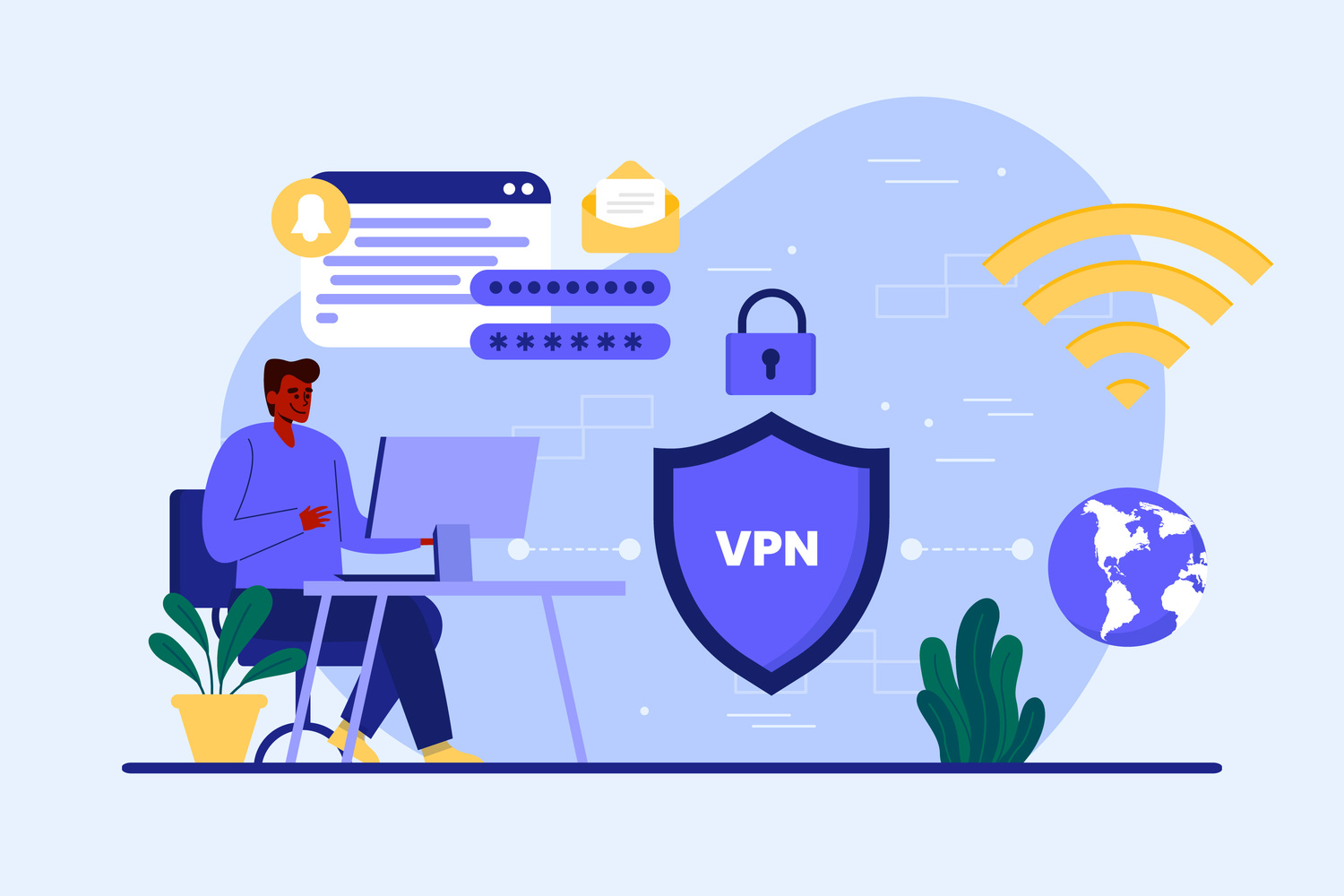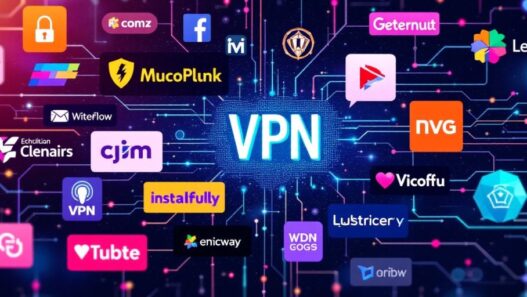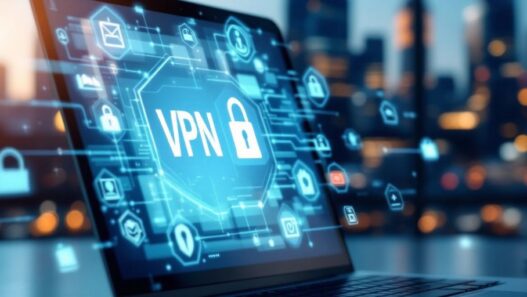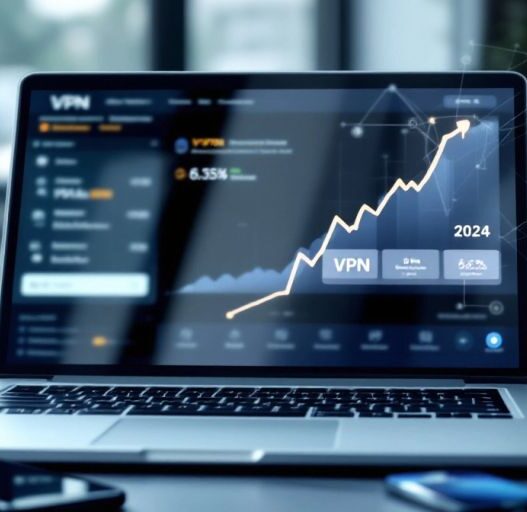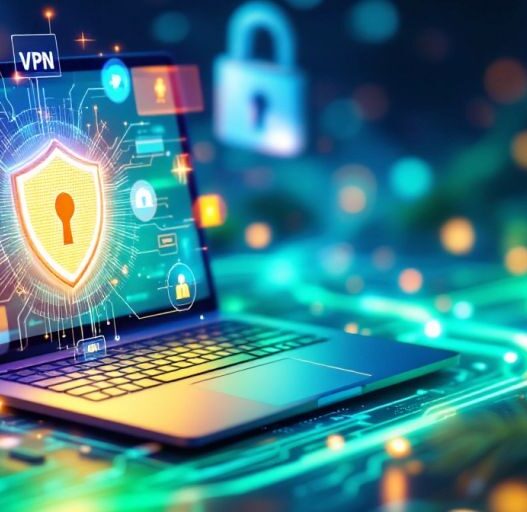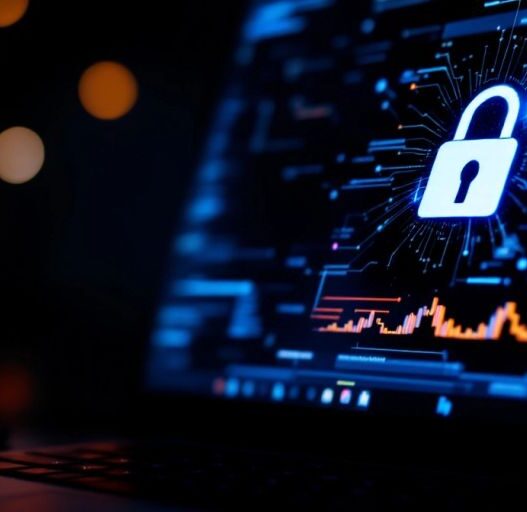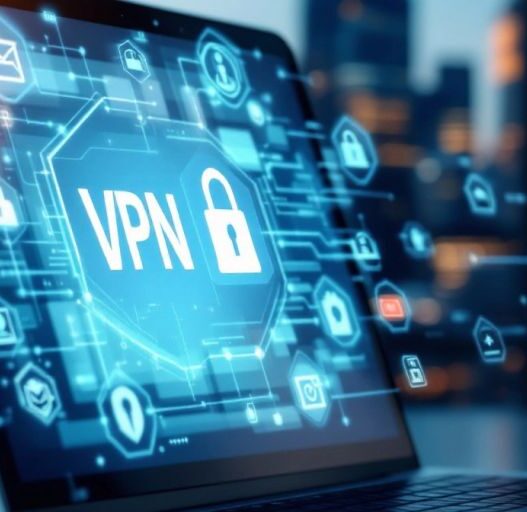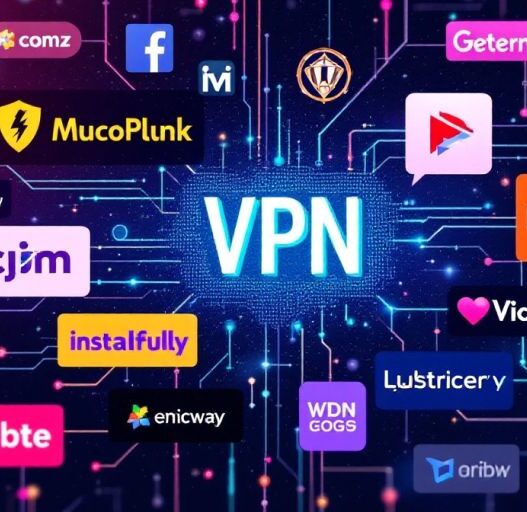The Importance of VPNs for Workplace Privacy

In today’s digital world, privacy at work is more important than ever. Virtual Private Networks (VPNs) are a powerful tool that can help protect your online activities and sensitive information. By using a VPN, you create a secure connection that keeps your data safe from prying eyes.
Understanding VPN Technology
A VPN works by creating a private tunnel for your internet traffic. This means that your data is encrypted, making it unreadable to anyone who might try to intercept it. Here are some key features of VPN technology:
- Encryption: Your data is scrambled, so even if someone gets access, they can’t read it.
- IP Masking: Your real IP address is hidden, making it hard for websites and hackers to track you.
- Secure Connections: VPNs provide a safe way to connect to the internet, especially on public Wi-Fi.
How VPNs Enhance Data Security
Using a VPN significantly boosts your data security. Here’s how:
- Protection from Hackers: VPNs make it difficult for cybercriminals to access your information.
- Safe Remote Access: Employees can securely access company resources from anywhere.
- Data Integrity: VPNs help ensure that your data remains unchanged during transmission.
The Role of VPNs in Protecting Employee Privacy
VPNs play a crucial role in maintaining employee privacy. They help:
- Prevent Tracking: Your online activities are shielded from employers and advertisers.
- Secure Sensitive Information: Personal and company data is kept confidential.
- Enhance Trust: Employees feel safer knowing their privacy is protected.
Using a VPN is not just about security; it’s about creating a work environment where privacy is respected and valued.
In conclusion, adopting a VPN in the workplace is essential for enhancing privacy and security. Consider exploring top VPN services that fit your needs. Protect your data and enjoy peace of mind while working. Don’t wait—take action today!
Benefits of Using a VPN in the Workplace
In today’s digital world, using a VPN (Virtual Private Network) is essential for protecting your workplace privacy. VPN benefits for employees include enhanced security, seamless access to company resources, and improved productivity. Here’s a closer look at these advantages:
Preventing Data Leaks and Breaches
- Extra Layer of Security: A VPN encrypts your internet connection, making it harder for hackers to access sensitive information.
- Safe Public Wi-Fi Use: When working in public places, a VPN keeps your data safe from prying eyes.
- Access Control: VPNs restrict access to company resources, ensuring only authorized users can connect.
Ensuring Confidentiality of Communications
- Encrypted Communication: VPNs protect your emails and messages from being intercepted.
- Masking IP Addresses: This makes it difficult for anyone to track your online activities, enhancing your privacy.
- Secure File Sharing: You can share sensitive documents without worrying about unauthorized access.
Accessing Company Resources Securely
- Remote Access: VPNs allow you to connect to your company’s internal network from anywhere, ensuring you can work efficiently.
- Bypassing Restrictions: If your company has specific tools that are only accessible from the office, a VPN can help you access them remotely.
- Consistent Performance: VPNs can improve your internet speed and reliability, making your work smoother.
Using a VPN not only protects your data but also helps you maintain a healthy work-life balance by creating a secure work environment.
In conclusion, investing in a reliable VPN service is a smart move for any organization. Consider top VPN providers that offer robust security features and user-friendly interfaces. By doing so, you can enhance your workplace privacy and productivity. Don’t wait—secure your work environment today!
Implementing VPNs for Remote Work
In today’s world, where remote work is becoming the norm, using a VPN (Virtual Private Network) is essential for maintaining security and privacy. Employee VPN use not only protects sensitive information but also ensures that you can work efficiently from anywhere.
Challenges of Remote Work Security
Remote work comes with its own set of challenges, including:
- Insecure Wi-Fi networks: Public Wi-Fi can expose your data to hackers.
- Data breaches: Without proper security, sensitive company information is at risk.
- Access to internal resources: Employees may struggle to access necessary tools securely.
How VPNs Facilitate Secure Remote Access
VPNs help overcome these challenges by:
- Encrypting your data: This makes it difficult for anyone to intercept your information.
- Providing secure access: You can connect to your company’s internal network safely.
- Allowing remote work flexibility: You can work from various locations without compromising security.
Best Practices for VPN Use in Remote Work
To maximize the benefits of using a VPN, consider these best practices:
- Choose a reliable VPN provider: Look for features like strong encryption and a no-logs policy.
- Install the VPN on all devices: Ensure that your phone, tablet, and laptop are all protected.
- Regularly update the VPN software: Keep your VPN client up to date to protect against vulnerabilities.
Using a VPN is not just about security; it’s about creating a safe and productive work environment.
In conclusion, implementing a VPN for remote work is a smart move for both individuals and businesses. By following the steps outlined above, you can ensure that your work remains secure and efficient. Consider top VPN services like NordVPN or ExpressVPN for individuals, and Perimeter 81 or Cisco AnyConnect for businesses. Protect your data and enhance your remote work experience today!
Choosing the Right VPN for Workplace Privacy

When it comes to VPN for workplace privacy, selecting the right service is crucial. A VPN, or Virtual Private Network, helps secure your internet connection and protects your data from prying eyes. Here are some key factors to consider when choosing a VPN for your workplace:
Key Features to Look For
- Strong Encryption Standards: Look for VPNs that use top-notch encryption methods like AES-256. This ensures that your data is safe from hackers.
- No-Logs Policy: Choose a VPN that doesn’t keep records of your online activities. This is important for maintaining your privacy, especially when handling sensitive information.
- Multi-Device Compatibility: Ensure the VPN works on various devices, such as laptops, smartphones, and tablets. This way, you can stay protected no matter what device you use.
Evaluating VPN Providers
When looking for a VPN provider, consider the following:
- Reputation: Research the provider’s history and read reviews to ensure they are trustworthy.
- Customer Support: Good customer service can help you resolve issues quickly.
- Performance: Check if the VPN offers fast and reliable connections to avoid interruptions during work.
Balancing Security and Usability
While security is essential, it shouldn’t make your work harder. Look for a VPN that is easy to use and doesn’t slow down your internet speed. A user-friendly interface can help you connect quickly without hassle.
In summary, choosing the right VPN is vital for ensuring a secure workplace internet. By considering these factors, you can find a VPN that meets your needs and keeps your data safe.
Recommended VPN Services
Here are some top VPN services that are great for workplace privacy:
- NordVPN: Known for its strong security features and fast speeds.
- ExpressVPN: Offers a user-friendly experience with excellent protection.
- Perimeter 81: Ideal for businesses, providing centralized management and enterprise-level security.
Call to Action
Don’t wait until it’s too late! Protect your workplace privacy today by choosing a reliable VPN. By doing so, you can ensure that your sensitive data remains secure and your online activities stay private.
Conclusion
In summary, using a VPN at work is essential for protecting both personal and company information. It creates a secure connection that keeps data safe from hackers and other threats. With a VPN, employees can work from anywhere without worrying about their privacy. This tool not only enhances security but also allows for smooth access to company resources, making remote work more efficient. By adopting a VPN, businesses can ensure that their employees are safe and productive, ultimately leading to a more secure workplace.
Frequently Asked Questions
What is a VPN and how does it work?
A VPN, or Virtual Private Network, creates a secure connection over the internet. It encrypts your data, making it hard for others to see what you’re doing online. Think of it as a private tunnel that keeps your information safe.
Why should I use a VPN while working from home?
Using a VPN at home helps protect your work data from hackers. It keeps your online activities private and ensures that only you can access your company’s information.
Can a VPN slow down my internet speed?
Sometimes, using a VPN can make your internet slower because your data has to travel a longer route. However, many VPNs are designed to minimize this effect, so you can still have a good experience.
